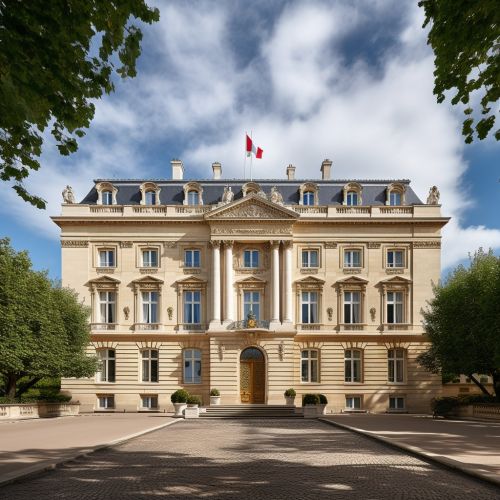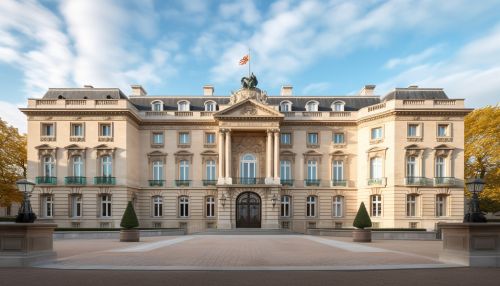Politics of France
Introduction
The politics in France operate within the framework of a semi-presidential system determined by the French Constitution of the Fifth Republic. The nation declares itself to be an "indivisible, secular, democratic, and social Republic". The constitution provides for a separation of powers and proclaims France's "attachment to the Rights of Man and the principles of national sovereignty as defined by the Declaration of 1789."
Political System
The French Republic is a unitary semi-presidential republic with strong democratic traditions. The constitution of the Fifth Republic was approved by referendum on 28 September 1958. It greatly strengthened the authority of the executive in relation to parliament.


The executive branch itself has two leaders: the President of the Republic, currently Emmanuel Macron, who is head of state, and the Government, led by the president-appointed Prime Minister.
The French parliament is a bicameral legislature comprising a National Assembly (Assemblée Nationale) and a Senate. The National Assembly deputies represent local constituencies and are directly elected for 5-year terms. The assembly has the power to dismiss the cabinet, and thus the majority in the Assembly determines the choice of government. Senators are chosen by an electoral college for 6-year terms, and one half of the seats are submitted to election every 3 years starting in September 2008.
Political Parties and Elections
France has a multi-party system, which means that several political parties must form coalitions or alliances to be able to form a government. The two main coalitions are the centre-right Rally for the Republic and the Socialist Party of the centre-left. The French political scene also includes smaller parties such as the French Communist Party, the Greens, the far-right National Front and others.
Political History
The political history of France is long and varied, beginning with the establishment of the monarchy in the Middle Ages, through the Revolution of 1789, the establishment of the Fifth Republic in 1958, and up to the present day. Each period has left its mark on the political landscape of the country, and continues to influence the way in which politics is conducted in France.
Political Issues
Current political issues in France include immigration, European integration, unemployment, and economic reform. The country also faces challenges related to environmental sustainability, social inequality, and international relations, particularly within the context of the European Union and NATO.
